STATEHOUSE REPORT | ISSUE 20.10 | MARCH 5, 2021
BIG STORY: Dominion solar energy proposal could dim S.C. market, critics say
NEWS BRIEFS: State budget proposes more spending on teachers, nurses, guards
LOWCOUNTRY, Ariail: How to control flooding
COMMENTARY, Brack: State doing better than you might think, feel
SPOTLIGHT: Conservation Voters of South Carolina
MY TURN, Saul: Why telling the truth is so important
FEEDBACK: Why didn’t you mention Greenwood County?
MYSTERY PHOTO: Where is this bridge?
Dominion’s solar proposal could dim S.C. market, critics say
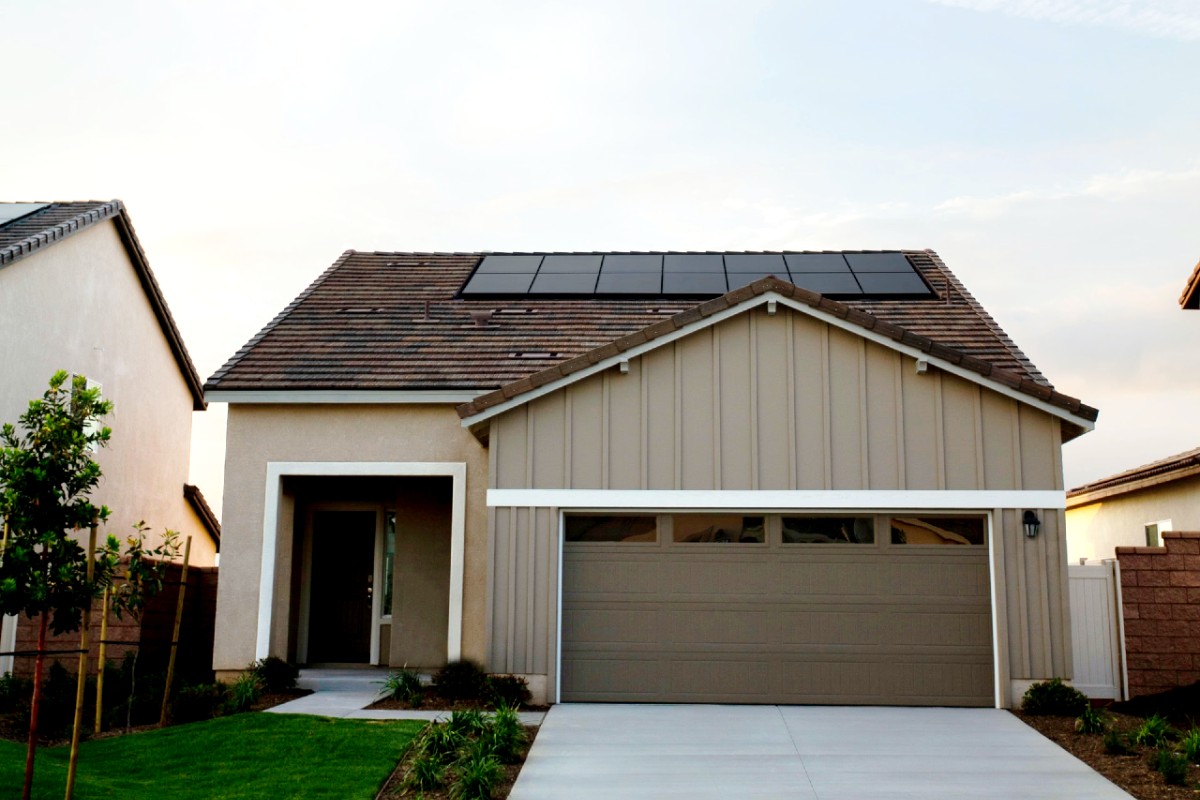
By Sam Spence, special to Statehouse Report | Dominion Energy’s South Carolina customers with solar power systems could face higher bills under a new proposal before state regulators this month.
The energy utility says the additional fees are designed to account for differences in how solar customers are charged, ensuring they are sharing infrastructure costs with non-solar Dominion ratepayers.
But solar energy industry and conservation advocates say the regulatory move could kill the state’s solar power market by raising costs for customers who invest their own money in renewable energy.
At issue is a proposal that would add at least $428 per year to the bills of Dominion’s residential solar energy customers, but typical customers could pay hundreds more.
Dominion and its critics have been jousting in front of the S.C. Public Service Commission (PSC) for months. A formal public hearing on the issue is scheduled for March 23.
Energy independence
A 2014 law limited solar generation in the state to 2 percent of the state’s peak-time capacity. By 2019, as the state got close to the limit, state legislators threw solar companies a lifeline with the Energy Freedom Act. In addition to lifting the 2 percent cap and forcing utilities to allow more solar-generation capacity, the law set a May 31, 2021, deadline for regulators, utilities and solar companies to settle on how solar-generating customers would be charged going forward.
 About 11,000 Dominion customers maintain residential solar energy-generating projects in South Carolina, which is less than 1.5 percent of its total 750,000-ratepayer customer base, according to the company.
About 11,000 Dominion customers maintain residential solar energy-generating projects in South Carolina, which is less than 1.5 percent of its total 750,000-ratepayer customer base, according to the company.
Currently, those customers are able to use any power their systems generate within their own systems and sell any excess energy generated back to Dominion with a program known as net metering. Customers with solar systems applied for or established by May 31, 2021, will continue to receive credits on their bills equal to the retail value of the power they produce until 2025 or 2029, depending on when they established service.
Dominion’s proposed “solar choice metering tariff,” laid out in the Energy Freedom Act, would add two monthly fees to residential customers’ bills: a $19.50 “basic facilities charge” and a “subscription fee” of at least $16.20, based on system size. (For businesses, the facilities charge increases to $32.50.) With an average-sized residential system, according to the Solar Energy Industries Association, that subscription would be $27 per month, adding up to an additional $558 per year.
Those fees, combined with adjusted credits for energy sold back to Dominion, would decrease the value of residential net metering by 55 percent, according to Timothy Beach, a California energy consultant who served as a witness for conservation and solar advocates intervening in Dominion’s request before the PSC.
“This tariff would result in a 55 percent reduction in the bill savings for a typical residential solar customer, such that a typical residential solar system would no longer be economic in (Dominion’s) service territory,” Beach told the commission in his January testimony.
Dominion notes solar customers must pull power from the grid when their panels cannot generate electricity, a cost that can’t be overlooked.
“The reality is that solar customers on our system still rely on non-solar generating sources 75 percent of the time, and it’s only fair that they share the costs for safe, reliable generation,” according to a statement provided by Dominion Energy spokesman Paul Fischer.
Shifting stances
Haggling over the intent of the 2019 law has been the subject of much debate between Dominion and its detractors.
Leaving responsibility to state regulators, the Energy Freedom Act called for new policies that sustain the state’s private solar energy industry and provide solar options that minimize financial impacts — “cost shifting” — for non-solar customers.
“The intent of South Carolina solar legislation was to establish rules that fairly allocate costs and benefits among all customers to eliminate any cost shift or subsidization,” Fischer said.
But the law itself calls for cost shifting to be eliminated “to the greatest extent practicable … while also ensuring access to customer-generator options.”
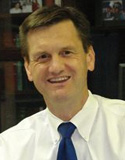
And according to the law’s co-author, S.C. Sen. Tom Davis, R-Beaufort, the 2019 law intentionally reflects the time when it was written: in the twilight of the V.C. Summer nuclear fiasco that raised rates for then-SCE&G customers and cleared the way for Dominion to swoop into South Carolina in the first place.
“It has been widely reported that this new law is about promoting clean energy, and that’s partially true,” Davis wrote in a May 2019 Post and Courier op-ed just after the bill was signed. “But it’s really about something more fundamental: It is a first and important step away from the energy-production monopolies that have saddled South Carolinians with some of the highest electricity bills in the nation, and toward real competition through an open market of many buyers and many sellers that will provide downward pressure on the cost of producing energy.”
The total price of solar generation already dropped 45 percent over the past decade, as the industry grew into the seventh-highest solar-generating state in the nation, according to the Solar Energy Industries Association. The group said the industry is expected to nearly double again over the next five years — under the current trajectory, that is.
Priced out
Energy advocates and industry executives say the higher prices could drive out companies that have already invested in expanding solar capacity in the state.
“You cannot decrease the value of that metering by 60 percent to the consumer and expect as many of them to say, ‘Yes, I’m going to invest thousands of dollars, or tens of thousands of dollars for commercial. into this into this effort,” said Frank Knapp, who is intervening as a private solar customer, but who also heads up the S.C. Small Business Chamber of Commerce.

Eddy Moore, an energy expert with the Coastal Conservation League, testified that the Energy Freedom Act does more than just stipulate who bears the costs of solar.
“It requires development of rates that will enable customers to produce meaningful bill savings, while serving a broader public good.” he said. “This is a sophisticated objective and one that seeks to empower customers with new rights, departing from the status quo approach to rates and rate design.
“If they adopt this source choice tariff, as proposed by Dominion, basically, we will see the closing of reputable solar companies in South Carolina,” Knapp said, pointing to a state consumer protection website that warns about solar scams.
That doomsday scenario for the industry could come to pass, according to some in the private solar industry.
“We are deeply disappointed that Dominion continues to advocate for policies that hurt home solar and takes away decision-making for people to choose their own power,” said Tyson Grinstead of Sunrun, one of the largest solar energy companies in the U.S. “We hope that the Public Service Commission weighs the benefits of customer choice and home solar in their decision on Dominion’s anti-solar proposal.”
Dominion counters that the new tariffs would not remove consumers’ choice to invest in solar energy.
“The proposed Solar Choice tariff will not discourage South Carolinians from choosing solar,” Fischer said, explaining solar customers would be charged lower rates during off-peak hours. “This is a big win for customers who want more freedom and control over their bill.”
Don Zimmerman, the CEO for Charleston-based Alder Energy, was not as optimistic in his testimony to the commission, calling the proposal “disastrous” and “industry-killing” for residential and commercial customers alike.
“Only one conclusion can be drawn: (Dominion) intends on punishing businesses that want to generate their own electricity,” he said.
Sam Spence is editor of the Charleston City Paper. Have a comment? Send to: feedback@statehousereport.com. Make sure to add your name and contact information for verification.
State budget proposes more for teachers, nurses, guards
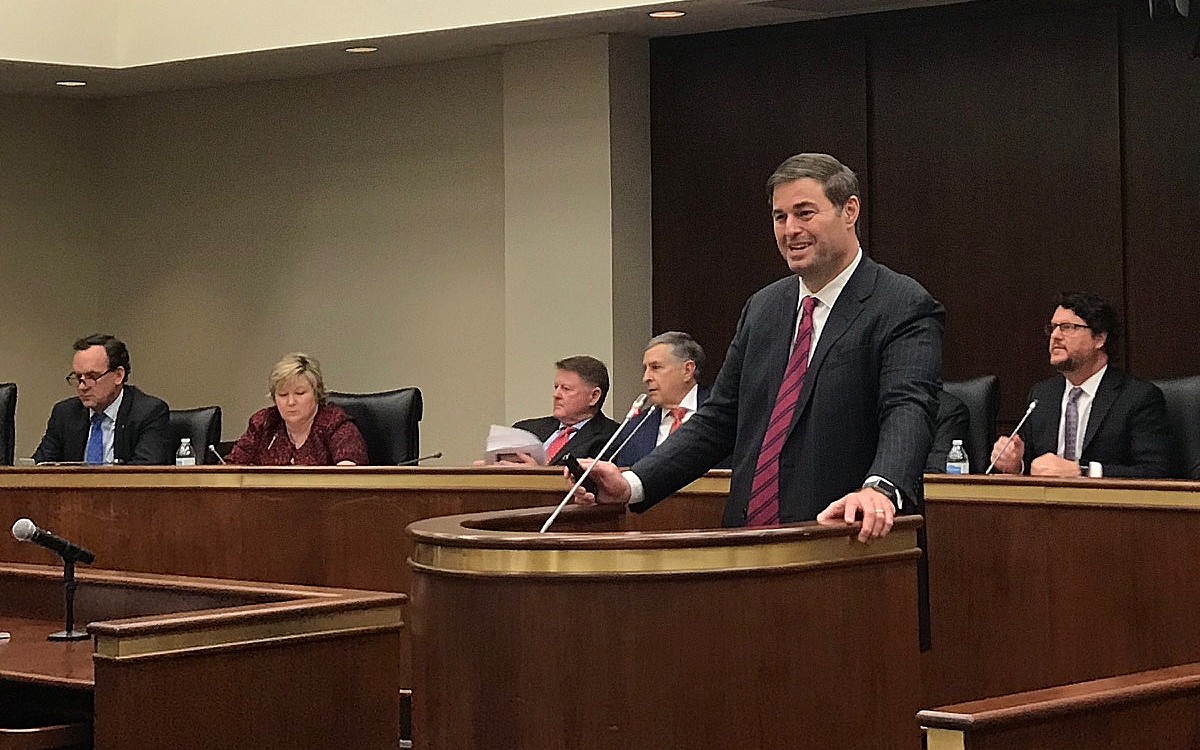
Staff reports | The S.C. House Ways and Means committee on Thursday approved a $9.8 billion state budget proposal that would spend more money on teachers, nurses, guards and prisons. The proposal will be debated by the full House in two weeks.
The budget includes “a limited amount of new recurring projected revenue, just $180 million to spend — down from the $800 million they expected to have before the pandemic — and they also have $956 million of nonrecurring dollars available,” according to The State.
In other recent news:
![]() Bill allowing open carry in S.C. heads to House floor. After the House Judiciary Committee voted 16-8 Tuesday to approve a measure allowing the open carry of handguns, the bill headed to the House floor. Expect it to be debated next week on the House floor. More: AP/WSPA.
Bill allowing open carry in S.C. heads to House floor. After the House Judiciary Committee voted 16-8 Tuesday to approve a measure allowing the open carry of handguns, the bill headed to the House floor. Expect it to be debated next week on the House floor. More: AP/WSPA.
S.C. Senate committee passes bill making it easier to access birth control. After the legislature passed a measure to essentially end all abortions, a GOP-sponsored bill that would allow pharmacists to prescribe a woman a contraceptive without a patient-specific prescription has passed a state Senate committee. More: WCSC TV. Also see The Post and Courier.
Straddling the fence. A new profile in The New Yorker of the South Carolina fissure between Trump acolytes and old-time Republicans has Charleston County GOP Chairman Maurice Washington in a pickle, Peter Slevin reports: “It’s hard to please everyone, Washington said, especially when some of his fellow-Republicans can barely stand one another. But he believes that the best way forward for the Party, if it hopes to remain viable in contested districts, is to welcome everyone. Even QAnon believers? “Absolutely,” he said. “Look, you can’t be dismissive of people who have strong viewpoints. People have got to be open-minded to hear things they don’t want to hear, but still stay at the meeting. The choice was to condemn, correct, and create a further divide. To do it in the midst of peers, you put people where? On the defensive.”
S.C. superintendent pleads to stop trans sports bill, GOP advances it anyway. State Superintendent Molly Spearman asked a House subcommittee Wednesday to stop a bill effectively banning transgender students from school sports, saying it would make it harder to make sure all students feel protected on campus. The committee gave the OK for the bill to move ahead minutes later. More: Charleston City Paper/
S.C. Senate bill could do away with sub-minimum wage for people with disabilities. A South Carolina law that allows people with disabilities to be paid less than minimum wage could be phased out under a bill filed by Sen. Katrina Shealy, R-Lexington, earlier this month. More: Charleston City Paper
S.C. Senate approves reinstatement of small annual raises for teachers. A proposal that would pay South Carolina teachers the small annual raises that were postponed at the start of the school year because of economic uncertainty with the pandemic passed the Senate Tuesday. More: AP News
Office of Resilience doesn’t get funding request. Gov. Henry McMaster did not put in a request to fund the Office of Resilience to pay for flood management projects around the state. McMaster’s office said the office needs to be operational before the governor can recommend additional funding. More: The Post and Courier
S.C. adds firing squad to list of execution methods. South Carolina senators Tuesday added a firing squad to the electric chair as alternatives if the state can’t execute condemned inmates by way of lethal injection. More: AP News
How to control flooding
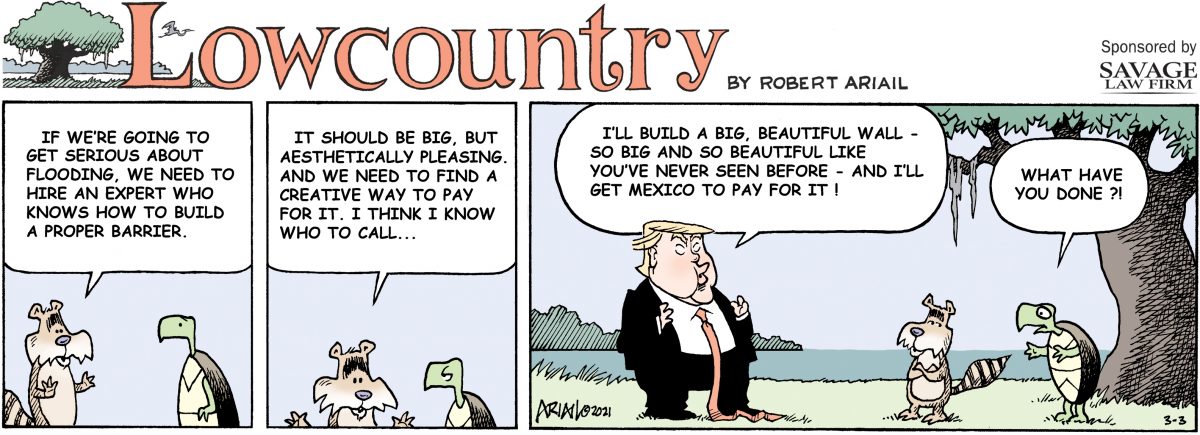
Here’s a new cartoon by Robert Ariail that first was published in our sister newspaper, the Charleston City Paper. Love it? Hate it? What do you think: feedback@statehousereport.com.
State doing better than you might think, feel
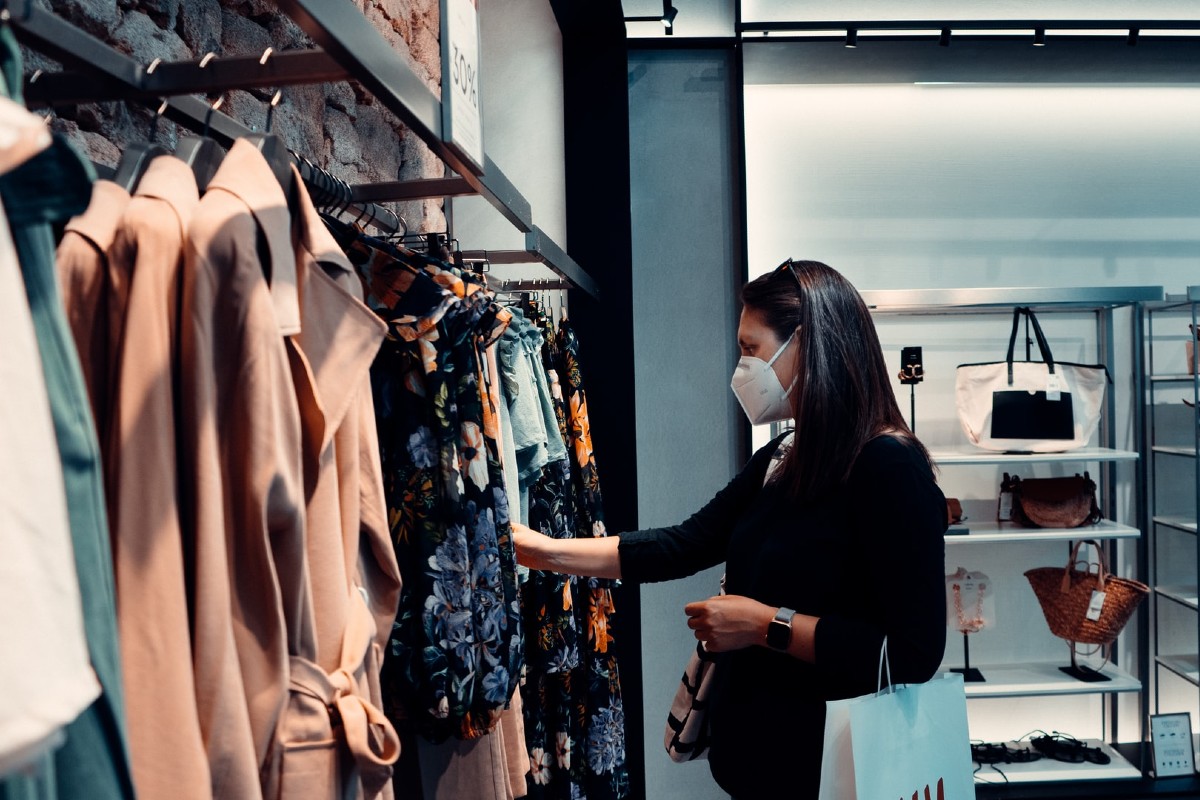
By Andy Brack, editor and publisher | Our roadways are busy. Traffic is back. If you walk on downtown streets, there are more people than in a long time. Tourists are returning. Restaurants are opening. Airports are picking up steam.
 While South Carolina’s infection rate for COVID-19 remains one of the highest in the nation, we seem hellbent on getting back to normal — even though it would be smarter to remain cautious and as distanced as much as possible for three more months until most Americans are vaccinated.
While South Carolina’s infection rate for COVID-19 remains one of the highest in the nation, we seem hellbent on getting back to normal — even though it would be smarter to remain cautious and as distanced as much as possible for three more months until most Americans are vaccinated.
In many ways, South Carolina has never been truly shut down like other states, except for a few weeks in the spring last year. Instead, most of us adapted by wearing masks, not going to events and crowded places, shopping at odd hours and staying in more than before the pandemic.
“As COVID first hit, you could drive down the highway and see a ghost town, but now it’s back to normal,” said Jason Lee, president of REV Federal Credit Union in the Lowcountry.
But across the state, people seem to think we have been in total lockdown. Nope. That was California or New York where many people didn’t leave their homes for long periods of time.
It’s the age-old difference between perception and reality. Because the pandemic has altered lives, South Carolinians seem to think things have been just horrible for months on end. That’s the perception. (Look at it another way, too. Haven’t you caught up on home projects? Learned some new skills? Spent more time with immediate family? Saved a little money from not going out as much?)
The reality is we’re really not off the mark as much as you might think — because we never truly shut down as infections raged.
Overall, the state’s economy is off about 2 percent of what it was before the pandemic. If you take away the leisure and hospitality industries — which were hit particularly hard by the pandemic — South Carolina has pretty much recovered, said research economist Joey Von Nessen of the Darla Moore School of Business at the University of South Carolina.

“We’ve seen significant recovery in South Carolina, but it’s been very dichotomous as well,” he said. “If you pull leisure and hospitality (from the numbers), we have seen employment recover within 1 percentage point of where it was before the pandemic hit. That’s a very strong recovery the state has seen. But if we look at leisure and hospitality by itself, it’s still down about 16 percent in employment of where it was.”
In February 2020, 2,217,100 of all South Carolinians were employed, according to the U.S. Bureau of Labor Statistics. By December, the number was off just over 60,000 jobs to 2,156,400 people with jobs.
Now look at leisure and hospitality. Last February, 281,700 people were employed in the sector, compared to 236,000 in December. In other words, three in four of South Carolinians without jobs are from this one sector with only 15,000 people from all other sectors.
In fact, many sectors are doing very well.
“From a housing perspective, there is a lot of lending going on,” said Lee, who added that his bank had a banner year last year. “It seems like it shouldn’t have been that way. Deposits grew by 18 percent and loans by 20 percent.”

In the hot Charleston market, for example, owners with homes on the market reportedly are sometimes getting offers above list value. Total single-family sales volume was up nearly 17 percent in 2020 over 2019, Von Nessen said, which made the total sales volume for the year to be one of the strongest ever in the region.
Yet despite examples and data, most people really don’t feel things are different. Maybe it’s because COVID-19 vaccinations aren’t yet ubiquitous. Or we just don’t feel like things are back because of masking, distancing and ways we changed behaviors.
And there’s data to support that, too. Consumer confidence surveys show Americans have much less faith in what’s going on than a year ago. The University of Michigan’s Index of Consumer Sentiment was at 101 points before the pandemic, but down to 76.8 in February.
Confidence will take time to rebound, but it will — just like most jobs have.
Andy Brack is editor and publisher of Statehouse Report. Have a comment? Send to: feedback@statehousereport.com.
Conservation Voters of South Carolina
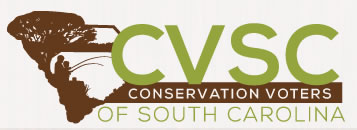 The Conservation Voters of South Carolina is a statewide nonprofit organization that fights for the Palmetto State’s air, water, land and energy through political action. The organization is bipartisan, pragmatic and effective.
The Conservation Voters of South Carolina is a statewide nonprofit organization that fights for the Palmetto State’s air, water, land and energy through political action. The organization is bipartisan, pragmatic and effective.
Through scorecards and advocacy at the Statehouse, CVSC holds South Carolina legislators accountable for their votes and actions. As a small organization that operates as a nonprofit and has a political action committee, we have a big impact. Learn more today by clicking any of the links below:
- CVSC Legislative Scorecards
- CVSC Issues
- CVSC News
- How to take action with CVSC
Why telling the truth is so important
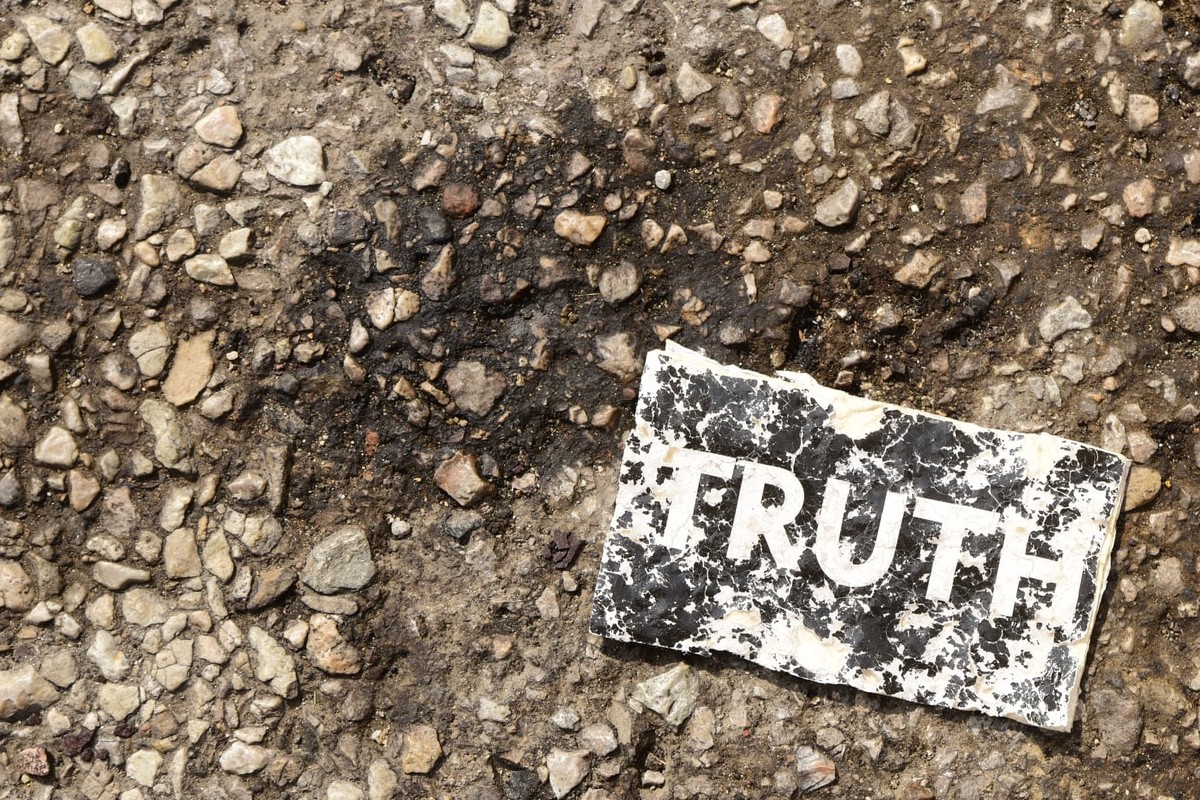
By Dr. Robert Saul, special to Statehouse Report | Truth-telling is an essential skill for personal life, for interpersonal social interactions, for community activities and for governmental decision-making.
This obviously goes without saying, but I would argue that we are suffering from some of the recent ill effects of “less than truth-telling.”
 Before everyone starts pointing fingers at each other or at the other political party, let’s settle back and just be honest with each other. Truth-telling can be hard at times (it has consequences) and listening to truth-telling can be hard at times (it can change our thoughts and actions). And it indeed takes a good deal of perseverance.
Before everyone starts pointing fingers at each other or at the other political party, let’s settle back and just be honest with each other. Truth-telling can be hard at times (it has consequences) and listening to truth-telling can be hard at times (it can change our thoughts and actions). And it indeed takes a good deal of perseverance.
Truth is not in the eye of the beholder. Truth is a series of facts that often need to be proven or investigated. Truth is not an opinion. Truth is not a series of alternate facts because a series of alternate facts is a series of untruths. The search for truth can be frustrating but eventually leads to the correct way to live and to conduct oneself.
Let’s look at the various spheres of involvement.
Personal. Truth-telling on a personal level affects interaction with ourselves, family members and others. We have all been guilty of “fudging” the truth sometimes when trying to figure out if we should admit to an indiscretion or not. Yet such an exercise is critical for our personal development, our physical and emotional well-being, and our ability to mature and engage others in an effective way. Honesty with ourselves allows us to promote the truth and also can allow us to improve our lives. We need to realize that we might know some facts but not the whole truth. Life and knowledge can be complex. Context may change the relevance of certain truths, and new revelations can lead to reassessments that can alter our behavior. Introspection is critical and must be done with sincerity and humility.
Interpersonal. Our interactions with others demand our use of common truths. If we expect to interact in an honest manner with others, we have to accept the facts that govern a civil society. We have to interact with our family members, friends and colleagues in a truthful manner. This means that we have to be willing to listen and adapt to change with interactions with others and that we don’t simply tell folks “what the truth is.” We must listen and assess and use the truth as a guiding principle, calling out untruths when needed.
Community. For any positive changes to occur in our communities, citizens and their leaders need to exchange ideas and improvements in a manner that uses facts and groups of facts (truth). In the search for truth, citizens need to be willing to listen to each other, to have open discussions with honest interactions that can accept information that can reveal uncomfortable information that might change our views and behavior. Often, we need to seek the counsel of others (educators, teachers, scientists and the like) as we reveal past “truths” that might have been inappropriately labeled as undeniable truths but in fact were based on past biases and are clearly not true. Communities only move forward with a common set of values.
Government. The actions of our public officials should be predicated on truths, but this can be very difficult to accept. In 2020, we had a dramatic demonstration of this. Information based on science can be static and ever evolving at the same time. The COVID-19 pandemic revealed that basic science (the understanding of virology) can be altered as new information comes to light about how this disease spreads and causes disease (the use of epidemiology). The former is rather static, but the latter can be quite the moving target. However, the subversion of epidemiology (by dismissing the importance of face masks and physical distancing and appropriate public health information) during the pandemic by non-experts in the previous administration led to excess unnecessary deaths. Ignoring the truth about the public health crisis and ignoring the promotion of widespread measures that could have averted thousands of deaths provides a dramatic example of the importance of truth-telling.
Truth-telling is essential at all levels and the necessary precursor to trust. It requires honest interactions with ourselves, our families, our fellow citizens and our public officials. This work is hard and ongoing.
Dr. Robert A. Saul is a Greenville pediatrician and the author of “My Children’s Children: Raising Young Citizens in the Age of Columbine” and “All About Children.” Have a comment? Send to: feedback@statehousereport.com.
Why didn’t you mention Greenwood County?
To the editor:
![]() You encouraged us to scratch our itch to travel in South Carolina. You gave great suggestions with one glaring omission. You forgot to mention Greenwood County, birthplace of renowned civil rights leader, Dr. Benjamin E. Mays.
You encouraged us to scratch our itch to travel in South Carolina. You gave great suggestions with one glaring omission. You forgot to mention Greenwood County, birthplace of renowned civil rights leader, Dr. Benjamin E. Mays.
The Benjamin E. Mays Historic Site in Greenwood offers an opportunity to walk through the house where he grew up. A museum has information on his education and career. There’s a small cotton field reminiscent of his early days in Epworth. Born in 1894 to former slaves, he was just a country boy from South Carolina, but he ended up earning degrees from Bates College in Maine and the University of Chicago. He taught at Howard University and was president for 27 years of Morehouse College in Atlanta where he became a mentor to Dr. Martin Luther King Jr. Schools in St. Paul, New Orleans. Chicago, Atlanta, Pacolet, S.C., and Greenwood are named in his honor. His alma mater, Bates College, named the Benjamin Mays Center for him.
Greenwood invites you to visit with us at the Mays Historic Site. Maybe you can time it when our acclaimed topiaries are on display during the Festival of Flowers or during our Festival of Discovery featuring barbecue and blues. I’m sure some of our golfers would take you out on one of our courses, or if fishing is your thing, we can probably line you up for some time on Lake Greenwood.
— Charlotte Cabri, Greenwood
Enjoyed travel article
To the editor:
I enjoyed the article about travel. My wife and I drove to Georgetown last Saturday and ate a great little meat-and -three type place called SoCo Grille. It is on the main drag, Screven Street, just a half block from the Rice Museum.
Today, we went to Aiken, and came back to Florence through Wagener, Salley, Orangeburg and then up 95. In Wagener, we ate at the Litt;e Bake Shop and Deli on Main Street. Best Reuben I have had in years.
— Barry Wingard, Florence
Send us your thoughts
We love hearing from our readers and encourage you to share your opinions. But to be published, you’ve got to provide us with contact information so we can verify your letters. Letters to the editor are published weekly. We reserve the right to edit for length and clarity. Comments are limited to 250 words or less. Please include your name and contact information.
-
- Send your letters or comments to: feedback@statehousereport.com
Where is this bridge?
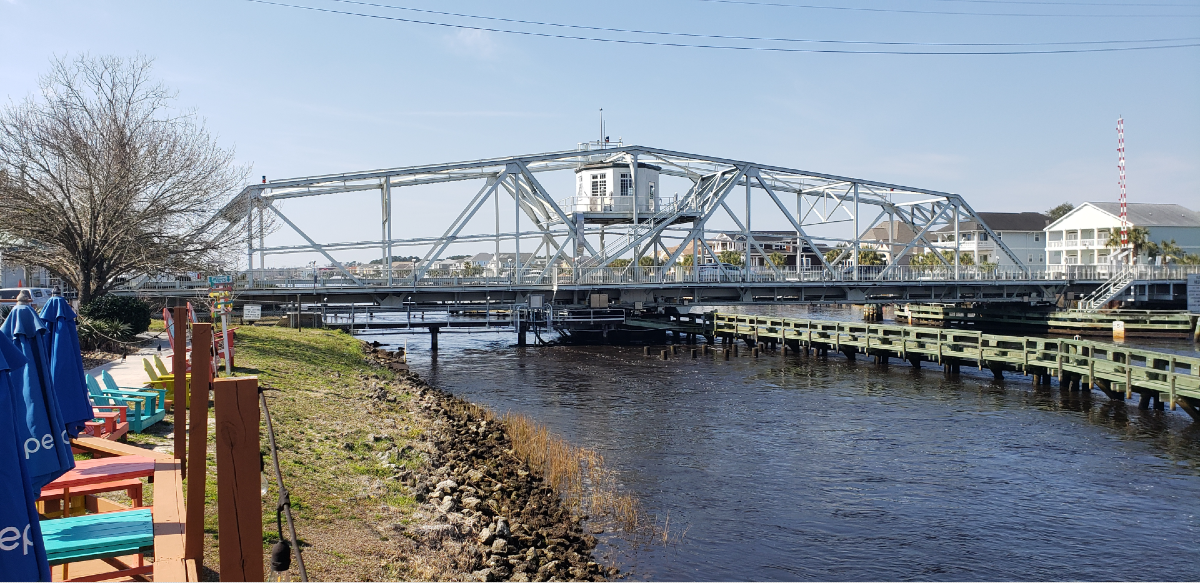
A longtime reader sent in this photo of a bridge somewhere in South Carolina. Can you identify it? Who is it named for? Send your guess to feedback@statehousereport.com — and remember to include your name, home city and contact information.
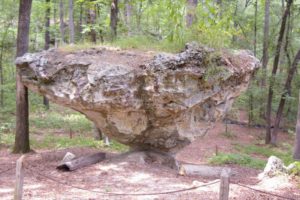 Last week’s mystery, “Balancing act,” is, sadly, a thing of the past. It showed an older photo of Peachtree Rock in Lexington County before it fell, apparently around 2013.
Last week’s mystery, “Balancing act,” is, sadly, a thing of the past. It showed an older photo of Peachtree Rock in Lexington County before it fell, apparently around 2013.
Congratulations to the many readers who identified it: Jay Altman, Christopher Frear, Karen Owens, Elizabeth Jones, Susan James and Rick Faile, all of Columbia; Robert Ariail of Camden; George Graf of Palmyra, Va.; David M. Taylor of Darlington; Randy Herald of Lexington; Frank Bouknight of Summerville; Penny Forrester of Tallahassee, Fla.; Allan Peel of San Antonio, Texas; Barry Wingard of Florence; Elaine Huff-Lowe of Inman; Kevin Mertens of Greenville; Bill Segars of Hartsville; and Henry Eldridge of Tega Cay.
Graf gave us a little detail: “The Nature Conservancy and the Department of Natural Resources jointly manage the Lexington County-area 460-acre preserve on which Peachtree Rock stood. … The ‘big rock’ for which Peachtree Rock Heritage Preserve was named took the shape of an inverted pyramid, balanced on its tip. This unusual silhouette was created when the waters of the Atlantic Ocean receded long ago. The lower layers of the rock eroded more quickly, creating a wide top and narrow base.”
Send us a mystery. If you have a photo that you believe will stump readers, send it along (but make sure to tell us what it is because it may stump us too!) Send to: feedback@statehousereport.com and mark it as a photo submission. Thanks.
ORDER NOW: Copies are in Lowcountry-area bookstores now, but if you can’t swing by, you can order a copy online today.
ABOUT STATEHOUSE REPORT
Statehouse Report, founded in 2001 as a weekly legislative forecast that informs readers about what is going to happen in South Carolina politics and policy, is provided to you at no charge every Friday.
Meet our team
- Editor and publisher: Andy Brack, 843.670.3996
- Special correspondent: Lindsay Street
- Staff at the Charleston City Paper
Donate today
We’re proud to offer Statehouse Report for free. For more than a dozen years, we’ve been the go-to place for insightful independent policy and political news and views in the Palmetto State. And we love it as much as you do.
But now, we can use your help. If you’ve been thinking of contributing to Statehouse Report over the years, now would be a great time to contribute as we deal with the crisis. In advance, thank you.
Buy the book
Now you can get a copy of editor and publisher Andy Brack’s We Can Do Better, South Carolina! ($14.99) as a paperback or as a Kindle book ($7.99). . The book of essays offers incisive commentaries by editor and publisher Andy Brack on the American South, the common good, vexing problems for the Palmetto State and interesting South Carolina leaders.
More
- Mailing address: Send inquiries by mail to: P.O. Box 21942, Charleston, SC 29413
- Subscriptions are free: Click to subscribe.
- We hope you’ll keep receiving the great news and information from Statehouse Report, but if you need to unsubscribe, go to the bottom of the weekly email issue and follow the instructions.
- Read our sister publications: Charleston City Paper (every Wednesday) | Charleston Currents (every Monday).
- © 2021, Statehouse Report, a publication of City Paper Publishing, LLC. All rights reserved.

















 We Can Do Better, South Carolina!
We Can Do Better, South Carolina!